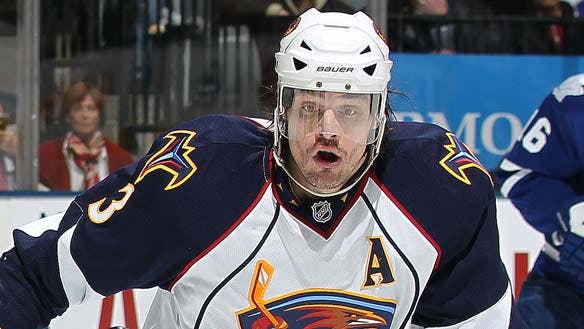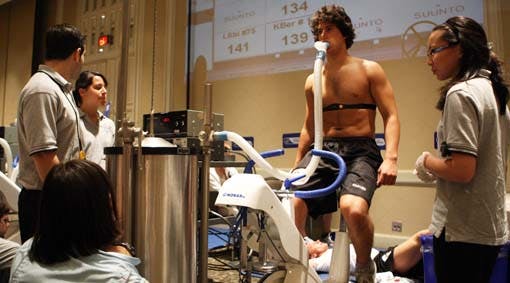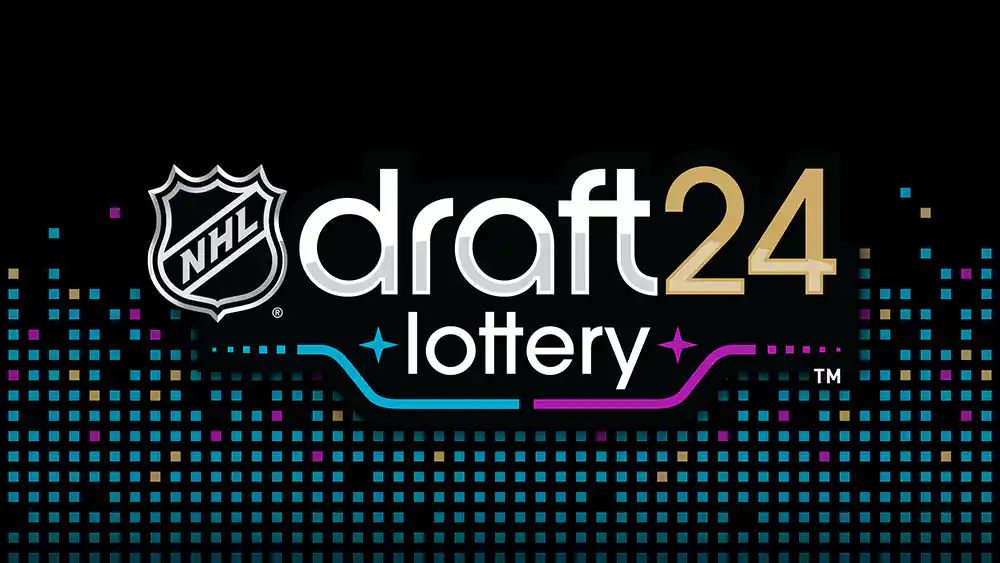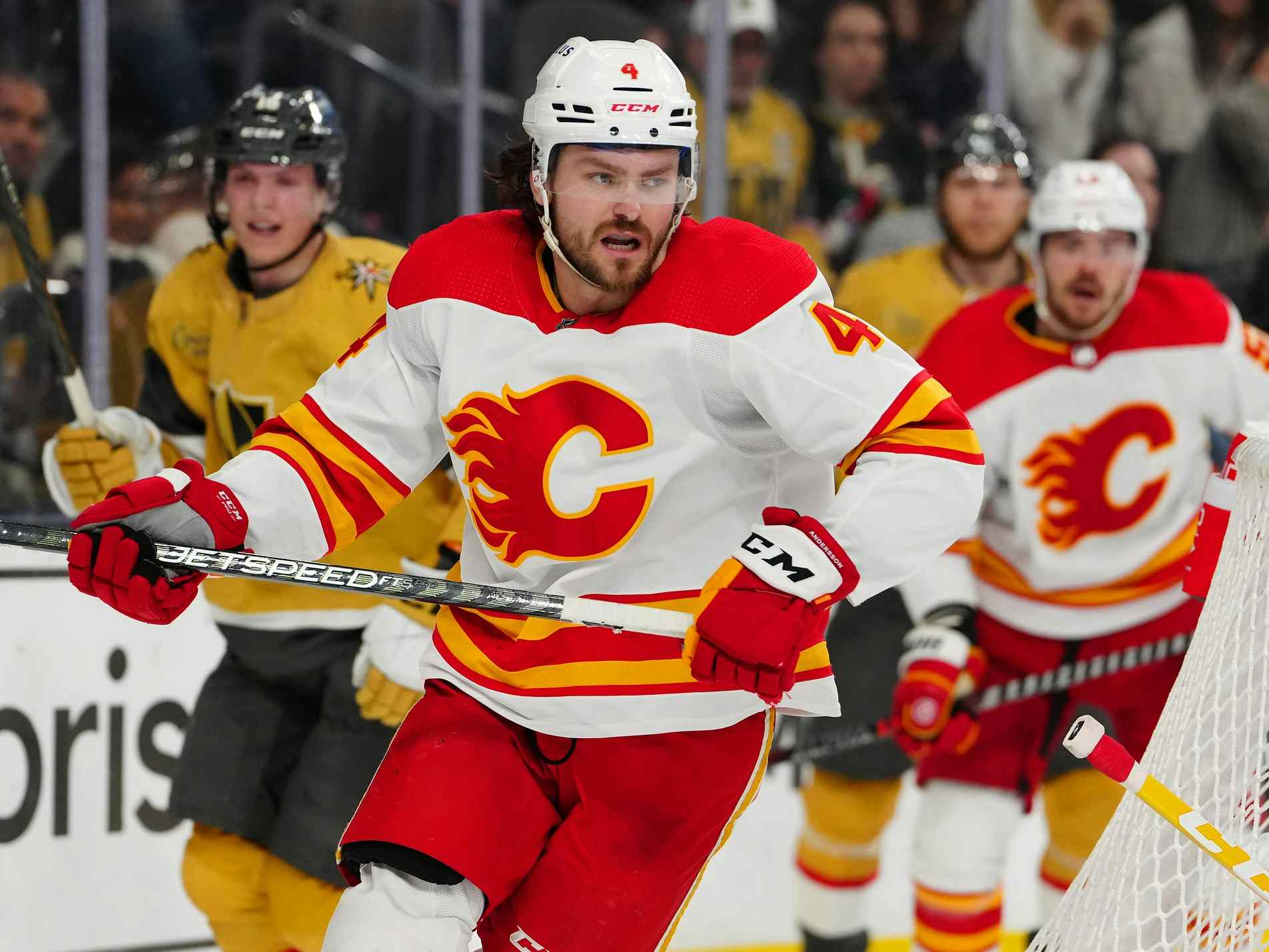Q&A with Brent Sopel
By Kent Wilson
12 years ago
(Andrey Osadchenko recently caught up with Brent Sopel. Here he talks to him about growing up on the prairies, playing for the Canucks winning the cup and signing in the KHL).
By: Andrey Osadchenko
– You were born in Calgary. What was it like growing up out there?
I was born in Calgary, indeed. But I lived there only for a couple years and moved to the prairies – to Saskatoon. That’s where I learned that I wanted to play hockey.
– Would you say you were a Flames fan growing up?
I was a Montreal Canadiens fan. But at the same time I wouldn’t say I was a fan of one team. I just wanted to see the guys who played in the NHL because it was my dream. So whenever I was in Calgary or any other city I would go to as many games as I could. I enjoyed a number of guys play. So if I could see one of them play, I would go and watch him play. Didn’t matter who it was or what team he played for. I was just excited to be a part of it.
– So the famous Battle of Alberta didn’t really touch you?
Growing up a saw quite a few Battle of Alberta games. It’s Saturday night hockey, you know. It’s a great rivalry. It’s great for Alberta fans. It’s great for hockey in general to have this kind of rivalries.
– Who was your favourite player growing up?
I can’t say I had one. I sort of like them all and wanted to be any one of those. Who didn’t want to be Wayne Gretzky and Mario Lemieux? Who didn’t want to be the best players of all time? The list goes on and on and on.
– How hard was it for you to move to Saskatchewan to play for the Blades and the Broncos?
I moved at a young age. So it wasn’t really a big deal. Calgary is a great city. But I really loved Saskatoon too. I had a great time there – no complaints, no regrets. It was a lot of fun growing up there.
– Did you notice a lot of differences between Saskatchewan and Alberta?
There are a lot of differences. Saskatchewan is flat and Calgary is not (laughter). It’s just 2 different cities. Calgary is a lot bigger. A lot of people move from Saskatchewan to bigger cities in Alberta, like Calgary and Edmonton. They want to get away from the prairies to where there are more jobs. Obviously, the oil-boom was coming along at that time so Calgary was becoming a really big city. It’s great to see that.
– Why did you move from Saskatoon to Swift Current?
When I got traded I was a little shocked. I grew used to call Saskatoon my hometown but at the same time I was pretty excited. Swift Current is a small town. Hockey was thing #1 over there since there wasn’t a lot going on. I really enjoyed my time in Swift Current. The town has great fans, they really care about hockey. I was there for no more than 3 years, but I wouldn’t say I didn’t have a great time there, no. I had a great time! Todd McLellan was a coach there back then. He really helped me to develop into a player that I am today.
– Did you feel a little bit like a star playing for the Broncos?
When I played in Swift Current there were only a couple of guys who went to play in the NHL – Brad Larsen and Craig Millar. I don’t know if anybody saw me as an upcoming star. I just went about my business. It’s a big difference between playing junior hockey and playing in the NHL. Some of the guys were stars in juniors but never got a chance to play in the NHL. It’s a big jump. Luckily, I found a way. I worked hard and that’s where it’s gotten me today.
– It’s a cliché that the toughest Canadian defensemen come from out West. What do you think about that?
I grew up on a farm in Saskatchewan. It’s a hard life. You’ve got to find a way to survive every single day. And that’s, I guess, what we do on the ice. It’s a different life growing up at the West than it is growing up at the East. There you grow up between the cities that are close to each other, and out West you can grow up on a farm in the middle prairies.
– Did you have to work at the farm?
Yes. I spent a lot of time in a city but I hung out with guys who had a farm. We were out there every weekend and I also was there all summer long. We worked on tractors, picking rocks and everything else you have to do on a farm.

– Didn’t it piss you off? I mean, you were about to become a pro hockey player and yet you had to work at a farm…
You know, there are some things that need to be done. You’ve got to work. Plus, hard work gets you everything you need and everything you want. If you don’t want it, you’re not going to get it. I’m never shining away from hard work whenever I have it. If it needs to get done, I’m getting it done. I loved everything about farm. There was nothing I didn’t. I loved being on tractors or with a cow herd. I loved everything about it.
– You played for 4 seasons in the WHL. Lots of guys who play in the NHL didn’t do that. Why did you stick around for so long?
I didn’t play much with the guys of my own age. I started young. It all worked out well. I guess that’s the way the cookie crumbles. I enjoyed all of it. I had some extra time there and after I played a few years in the minors. I think it helped me to develop my game. Sometimes it takes some players a little bit longer to develop. I guess I’m one of those. At the end of a day, I guess, I can compare myself with a fine wine that gets better with age.
– Being drafted by the Canucks was a good thing for you or not? I mean, the Canucks weren’t exactly your team.
I didn’t care what team it was. The fact that I got an opportunity to play in the NHL was terrific itself. The Canucks were a Canadian team. They played not too far from where I grew up and I had a lot of relatives living in Vancouver. So as a kid I spent a lot of time in Vancouver going there on vacations. I had no complains about that. On the contrary, I was ecstatic they took a shot at me and gave me an opportunity to start my career. They helped me to move on to be a player I am today.
– Some people say that Vancouver is the most beautiful Canadian city. Would you agree with that?
I don’t know if it’s the most beautiful city, but there are not too many cities where you go from being at the ocean to skiing. It helps that there’s not always snow outside. So you can always be outside running or riding your bike. It’s not like in Saskatchewan or Alberta where you always have to deal with snow. I think you can do a lot more in Vancouver outdoors because of that aspect.
– You debuted in the NHL in 1998-99 but really earned your spot there only in 1999-00.
Obviously, it took me a little bit longer to develop. But also back then the Canucks were a veteran team. So I was just biding my time in the minors. Then opportunity introduced itself and I got my shot. I tried to make the most of it. I worked really hard and in the next season I finally stuck around and made my mark in the NHL.
– Generally the AHL is seen as a grinding league. What’s your take on that?
I loved the AHL. It was a great time. We were a bunch of young kids trying to make their mark in pro hockey. We spent a lot of time on a bus but that was no different to what I was doing in the WHL. I was used to it. It was my first experience living in my own apartment. It helped me to become a person that I am today. I loved every second in the AHL.
– Speaking of long traveling, how much time did you spend on a bus playing in the WHL?
The season was 72 games long so we had our fair share of bus rides. Some were short like Moose Jaw and Regina. The others were longer like Seattle, for instance. It would take us about 20 hours to get there or something like that. We spent a lot of time on a bus. We had some great time together playing practical jokes on each other.
– You had a breakthrough season in 2003-04. You picked 10 goals and 42 points that season. Why did that happen?
With every year in the NHL I was trusted with more ice-time and had more opportunities to improve my points. And why not? I mean, we had some pretty good teams in Vancouver. Of course, we fell short in the play-offs, but I think we still had Stanley Cup calibre teams. We just didn’t get it done when it came to the play-offs. Marc Crawford was the coach at that time. He showed me what a player I could be and my points and ice-time were getting up. I tried to take advantage of it.
– After the lockout you were traded to the Isles, Kings and then back to the Canucks. What was that all about?
During the lockout the salary cap came in to be and there were only 2 of us who weren’t under contract with the Canucks – me and Marek Malik. So they had to deal both of us since they were up against salary cap. It was a new rule for everybody, nobody was used to it. I don’t complain. I had a great time and tried to do whatever I could on the ice. I always gave 110%. Sometimes it works and sometimes it doesn’t.
– They say that now there’s a huge rivalry between the Canucks and the Blackhawks. Is it really so?
Oh yeah. There’s a huge rivalry. Bad blood, for sure. We played a lot of play-off games against each other. And those games became heat. Now both teams look up at the calendar to see when they play each other. Because they know it’s going to be a battle.

– You won the Stanley Cup with the Blackhawks in 2010. Would you say that was the biggest moment in your career?
For sure. What player isn’t dreaming of winning the Stanley Cup? That’s your whole goal. There are so many great players that have never won it. But I can say: ‘Hey! Listen, I’ve won the Stanley Cup. Nobody can take that away from me’.
– Did it take a long time to realize that Kane’s shot went in? I mean, that was a pretty weird angle.
Nobody knew what exactly was going on. We saw him jumping around. He had to know – he was right there. So we started partying. We knew if he knew that it was good. That was definitely the most unique game-winning goal.
– One hears a lot of crazy stories about Stanley Cup celebrations. What’s yours?
I had a great time. My kids always wanted to eat cereal out of it. We had a family meeting, decided on a cereal and then ate it out of the Stanley Cup. I also had a dream to ride my tractor with a Stanley Cup. In my younger days I used to have a tractor at my farm. My father helped me to restore it. So I fired my tractor up, put the cup on it and went around the farm.
– It looks a little bizarre that you signed in Russia. How did that happen?
My agent was at a meeting in Chicago and he talked to a couple of teams out there. Then he called me and said: “Hey! We’ve got an offer!”. Then he explained the situation to me. I thought it would be a great opportunity.
– Your wife wrote on twitter she was disappointed with that deal.
She was happy. Obviously, that sad part is we’re going to part for a while. But she’s never been to Europe so she would like to use this opportunity to go there and see the other part of the world. She’s going to come out and visit me after I have spent some time with my new team and saw what’s going on. Both of us are going to use this opportunity to see the part of the world we’ve never seen before, embrace the culture, learn the language a little bit and have fun. Hopefully, the team is going to be successful enough to make it to the play-offs and we’ll have some fun there.
– Overall what do you know about Russia?
Not too much. I played with a few Russian players. We had many conversations about Russia, what goes on in the hockey world and so on. I’m going there with an open mind. I’m excited to see the country and explore different cities – like Moscow and St.-Petersburg. I heard they were 2 beautiful cities. I’ll learn the culture day-by-day.
– Fair enough. Although, your team is based in Siberia. Aren’t you scared a little bit?
I grew up in Saskatchewan and a lot of my friends say that it’s pretty much like Siberia. At least, it’s pretty much the same in the winter-time. So I’ll be used to it. It’s going to be an experience for me. I can say: ‘You know what? I have a chance to play in Siberia’. I mean, how many people can say that in Canada or America? It’s all going to be new to me. But I’m going to try to embrace it and have fun over there.
– According to stereotype, they drink a lot of vodka in Siberia.
(laughter) I heard the stories that they enjoy their vodka. I’ll see for myself if it’s true when I get there.
– What do you think you can bring into your new team?
I’ll just try to bring in my experience. We have a lot of young guys. Hockey is going to be a little different over there, obviously, because of the ice surface. I’ll try to bring in my work-ethic and teach the guys things that I’ve known for years now. I just want to go there and lead by example. I want to teach young guys some things they don’t know. Hopefully, it’s going to work out.
– What do you know about this team?
Obviously, last year wasn’t really a good year for the team – they were last in the league. They made some changes, signed some new guys and want to make the play-offs this season. And that’s going to be our goal this season. The town loves its hockey. I hope I can help them.
– Your former Russian teammate, Alex Burmistrov, recently said that you had a very unique pre-game routine.
There are a few things that I always like to do. I like to visualize certain plays and do it on a certain time on the clock. It’s just a few things I’ve been doing for so many years. It helps, it makes me successful. It may be a little different from what the most people do, but it works for me.
– Can you say anything in Russian yet?
Not yet. I haven’t had a chance to sit down and learn any of it but my oldest son has been taking some Russian classes. So he can speak the language a little bit. I’m going to sit down with him soon and do a crash-test. Hopefully, in a few days I’ll be able to say something in Russian.
– Are you aware of the fact that in Russian your last name sounds a lot like ‘snot’?
(laughter) A lot of my Russian teammates have told me that over the years. I’m not really sure how to change my last name, you know.
– It puzzles me. Why did you sign a 2-year deal?
Why not? It’s an honour they gave me an opportunity to go there. I want to see the whole picture, not just the shallow picture. I want to go there, learn the culture and the language a little bit, have some fun, see the part of the world I’ve never been to and have an opportunity to show it to my kids. That’s how I look at it.
– You played just under 700 games in the NHL. Did you have any other offers from the NHL teams?
I have talked to some teams. And then this opportunity came up. I talked to my wife and we agreed to that offer. I mean, I played almost 700 games in the NHL, won the Stanley Cup… I’m one of the few people that can say that. Maybe one of these days I’ll come back. Maybe not. Who knows? That was a great opportunity so I decided to take advantage of it.
– Do you think you would have to alter your game somehow in Russia?
I think it’s going to be a little different from the NHL game just because of the ice-surface. I’ll found out more how when I get over there. We’ll see how it’s going to work. Can’t really say anything about it now. I haven’t really talked to anybody from the team, but it’s going to be a little bit different from the NHL, for sure.
– In the KHL they say that they’re about to be on the same level as the NHL. Do you think it’s ever going to happen?
You never know. Never say never. The NHL has been around for so many years. They try to make the KHL as good as the NHL and I think they’ve done a great job. That’s why so many guys go to play over there. I guess time will tell.
Recent articles from Kent Wilson




